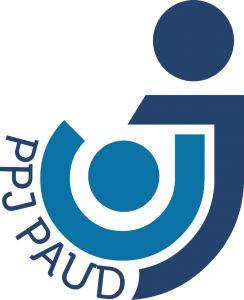EFEKTIVITAS METODE EDUTAINMENT DALAM MENINGKATKAN RASA PERCAYA DIRI ANAK DI TAMAN KANAK-KANAK
DOI:
https://doi.org/10.30736/jce.v6i1.842Keywords:
Metode edutainment, Rasa percaya diri, Anak usia dini,Abstract
Penelitian ini di latar belakangi kurang berkembangnya rasa percaya diri anak kelompok B. Perbedaan pola belajar di sekolah dan di rumah ini menjadi faktor utama yang mengakibatkan rasa percaya diri anak tidak berkembang dengan maksimal, serta kegiatan-kegiatan yang dilakukan di sekolah pun kurang menarik. Maka dari itu, tujuan dilakukannya penelitian ini ialah guna mengetahui seberapa efektif metode edutainment untuk meningkatkan rasa percaya diri anak kelompok B di Taman Kanak-kanak Telkom Schools Padang. Metode pada penelitian ini digunakan ialah kuasi eksperimen melalui desain penelitianNonequivalent control group design. Sampel dari penelitian ini menggunakan 20 anak dimana 10 anak pada kelas eksperimen dan 10 anak pada kelas kontrol. Teknik pengumpulan data pada penelitian ini ialah berupa tes perbuatan. Kemudian teknik analisis data memakai uji normalitas, uji homogenitas, uji hipotesis. Kemudian, pengujian hipotesis menggunakan uji t-test menggunakan aplikasi SPSS versi 22 for windows. Hasil dari penelitian dengan menggunakan uji t menunjukkan tingkat siginifikan sebesar 0,017. Kemudian, hasil perhitungan uji effect size dapat disimpulkan bahwa besarnya pengaruh metode edutainment untuk peningkatan kepercayaan diri anak ialah sebesar 1,36 yang tergolong tinggi. Hal ini menunjukkan bahwa penggunaaan metode edutainment efektif dalam meningkatkan rasa percaya diri anak.References
Agustriana, N. (2018). Pengaruh Metode Edutainment Dan Identitas Diri Terhadap Keterampilan Sosial Anak. Sumber Belajar Dan Alat Permainan Untuk Pendidikan Anak Usia Dini, 2(1), 229–241.
Albab, U. (2018). Teori Mutakhir Pembelajaran: Konsep Edutainment Dalam Pembelajaran Pendidikan Agama Islam. El-Tarbawi, 11(1), 51–62. https://doi.org/10.20885/tarbawi.vol11.iss1.art4
Dewi, A. R. T., Mayasarokh, M., & Gustiana, E. (2020). Perilaku Sosial Emosional Anak Usia Dini. Jurnal Golden Age, 4(01), 181–190. https://doi.org/10.29408/jga.v4i01.2233
Fadillah, M. (2014). Edutainment Pendidikan Anak Usia Dini: Menciptakan Pembelajaran Menarik, Kreatif dan Menyenangkan. Jakarta: Prenadamedia Group.
Fransisca, R., Wulan, S., & Supena, A. (2020). Meningkatkan Percaya Diri Anak dengan Permainan Ular Tangga Edukasi. Jurnal Obsesi : Jurnal Pendidikan Anak Usia Dini, 4(2), 630. https://doi.org/10.31004/obsesi.v4i2.405
Huliyah, M. (2017). Hakikat Pendidikan Anak Usia Dini. Aá¹£-á¹¢ibyÄn: Jurnal Pendidikan Anak Usia Din, 1(1), 60–71. https://doi.org/10.24090/insania.v15i3.1552
Juniarti, F. (2018). Meningkatkan Percaya Diri Anak Pada Aspek Kognitif Dengan Metode Bercerita. Jurnal Tunas Siliwangi, 4(1), 23–37.
Muflih, N. A. (2020). Penerapan Metode Edutainment Dalam Pembelajaran Bahasa Arab Kelas IV (Al-Waasi’) SD Al-Irsyad Al-Islamiyyah 02 Purwokerto Tahun Pelajaran 2019/2020. Institut Agama Islam negeri (IAIN) Purwokerto.
Permendikbud. (2014). Standar Nasional Pendidikan Anak Usia Dini. Nomor 137: BAB III-BAB IV.
Prakoso, A. F., Trisnawati, N., Soesatyo, Y., Tjipto Subroto, W., & Canda Sakti, N. (2019). Keefektifan Pemantapan Kemampuan Guru SMK dalam Menulis Proposal Penelitian Eksperimen. Jurnal Pemberdayaan Masyarakat Madani (JPMM), 3(1), 59–82. https://doi.org/10.21009/jpmm.003.1.05
Radliya, N. R., Apriliya, S., & Zakiyyah, T. R. (2017). Pengaruh Penggunaan Gawai Terhadap Perkembangan Sosial Emosional Anak Usia Dini. Jurnal Paud Agapedia, 1(1), 1–12. https://doi.org/10.17509/jpa.v1i1.7148
Santoso. (2018). Penerapan Konsep Edutainment Dalam Pembelajaran Di Pendidikan Anak Usia Dini (PAUD). INOPENDAS: Jurnal Ilmiah Kependidikan, 1(1), 61–68. Retrieved from http://jurnal.umk.ac.id/index.php/pendas/index
Sujiono, Y. N. (2016). Konsep Dasar Pendidikan Anak Usia Dini. Jakarta: PT. Indeks.
Triningtyas, D. A. (2016). Study Kasus Tentang Percaya Diri, faktor Penyebabnya dan Upaya Memperbaiki Dengan Menggunakan Konseling Individual. Counsellia: Jurnal Bimbingan Dan Konseling, 3(1).
Uttari, S. A. P. L., Antara, P. A., & Ujianti, P. R. (2018). Pengaruh Metode Edutainment Terhadap Kemampuan Klasifikasi Anak Taman Kanak-Kanak. 6(1), 105–114.
Yusuf, E. B. (2017). Penerapan Metode Edutainment dalam Pembelajaran Bahasa Arab untuk Anak. Yinyang: Jurnal Studi Islam Gender Dan Anak, 12(1), 191–211.
Downloads
Published
How to Cite
Issue
Section
License
Please find the rights and licenses in JCE (Journal of Childhood Education). By submitting the article/manuscript of the article, the author(s) agree with this policy. No specific document sign-off is required.
1. License
Use of articles will be governed by the Creative Commons Attribution - ShareAlike license as currently displayed on Creative Commons Attribution-ShareAlike 4.0 International License.
2. Author(s)' Warranties
The author warrants that the article is original, written by stated author(s), has not been published before, contains no unlawful statements, does not infringe the rights of others, is subject to copyright that is vested exclusively in the author and free of any third party rights, and that any necessary written permissions to quote from other sources have been obtained by the author(s).
3. User Rights
JCE (Journal of Childhood Education)'s spirit is to disseminate articles published are as free as possible but there is a little payment for publication. Under the Creative Commons license, JCE (Journal of Childhood Education) permits users to copy, distribute, display, and perform the work for commercial purposes. Users will also need to attribute authors and JCE (Journal of Childhood Education) on distributing works in the journal and other media of publications.
4. Co-Authorship
If the article was jointly prepared by more than one author, any authors submitting the manuscript warrants that he/she has been authorized by all co-authors to be agreed on this copyright and license notice (agreement) on their behalf, and agrees to inform his/her co-authors of the terms of this policy. JCE (Journal of Childhood Education) will not be held liable for anything that may arise due to the author(s) internal dispute. JCE (Journal of Childhood Education) will only communicate with the corresponding author.
5. Miscellaneous
JCE (Journal of Childhood Education) will publish the article (or have it published) in the journal if the article’s editorial process is successfully completed. JCE (Journal of Childhood Education)'s editors may modify the article to a style of punctuation, spelling, capitalization, referencing and usage that deems appropriate. The author acknowledges that the article may be published so that it will be publicly accessible and such access will be free of charge for the readers as mentioned in point 3.
JCE (Journal of Childhood Education) by Universitas Islam Lamongan is licensed under a Creative Commons Attribution-ShareAlike 4.0 International License.Based on a work at http://journalfai.unisla.ac.id/index.php/jce.












